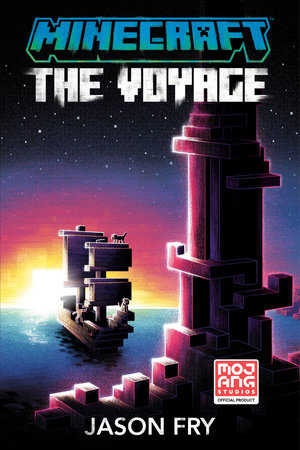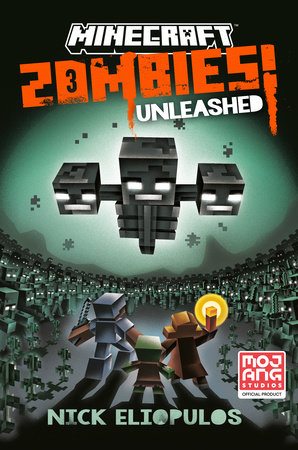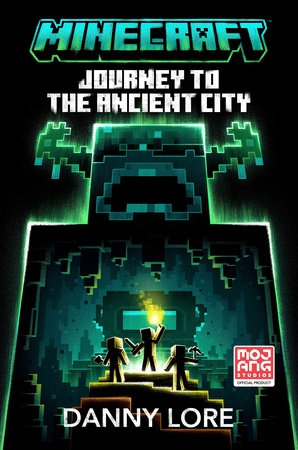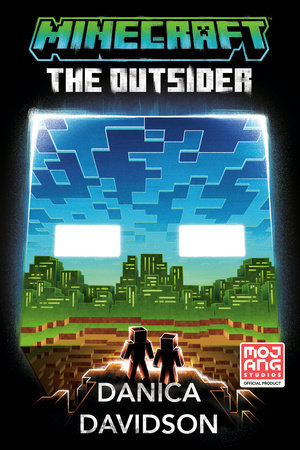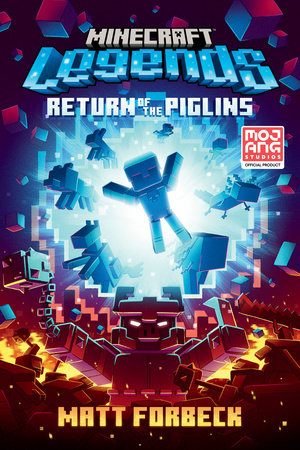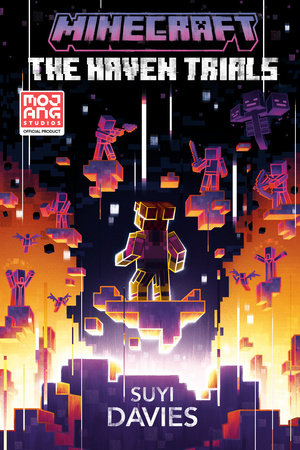Excerpt
Minecraft: The Voyage
Chapter 1The House by the SeaOf Stax Stonecutter and his three faithful companions
In a house by the sea there lived a young man.
In a few minutes I’ll tell you about the young man, who after all is the hero of this story. But first you ought to know something about the house, because it’s important to our tale as well.
The house wasn’t a palace. You probably wouldn’t even call it a mansion. But it was big, and most people who saw it thought it was beautiful. It was built out of black-and-white speckled diorite, pink granite, and glass. The diorite and the granite had been carefully polished, so the first rays of the morning sun made the house seem to glow, like it was lit from within.
The house had been built into the side of a green hill dotted with white birches, so it looked like it was part of the landscape, instead of something artificial that had been stuck in the middle of it. And the land around the house had been carefully reshaped to make it pleasing to the eye.
If you approached the house by sea, you’d step off your boat at the end of a broad green lawn, with a line of birch trees to either side. To your right, you’d find a low hill covered with flowers of every color: roses and peonies and tulips and cornflowers and daisies. To your left, beside another low hill, you’d see pens for cattle and pigs and chickens and sheep, and above them you’d find lovingly tended rows of crops: wheat, beetroot and carrots, and the squat squares of pumpkins and melons. Ahead and above you, you’d see the house. To reach it, you’d pass between the white birch trees, perhaps thinking they looked a little like soldiers on parade, walk around a cheerful fountain that splashed and burbled in a square of green lawn, and climb a broad flight of polished diorite steps until you stood at the front door.
The young man who lived in the house was named Stax Stonecutter, and he was the third in the line of Stonecutters to call it home. Stax’s grandmother, the first Stonecutter anyone had ever heard of, had built a simple dwelling in the side of the hill many years before—little more than a cave chopped out of the dirt and rock. It was her son, Stax’s father, who’d enlarged the house and planted the trees and flowers and made the Stonecutter home into an impressive estate.
Stax’s father and grandmother were dead now, buried alongside the rest of his family in a place of honor in the back garden. Stax lived alone, or almost alone. Three cats lived with him: a black one with golden eyes, a gray-striped one with green eyes, and a Siamese with blue eyes. They were called Coal, Emerald, and Lapis, after some of the rocks and minerals the Stonecutter family had mined from the ground over the years.
Stax loved Coal, Emerald, and Lapis and considered them company enough for a happy life. In recent years he’d begun to talk with them, even though they never offered answers beyond swishes of the tail, purrs, or the occasional meow. Visitors to the Stonecutter estate had grown used to coming across Stax somewhere on the grounds, planting flowers or pruning tree limbs while chatting companionably with one or more of the cats, who more often than not would be asleep in the sun.
The people who lived near the Stonecutter estate thought this behavior was a bit strange, but then everything about Stax struck them as at least a bit strange. His oldest neighbors remembered Stax’s grandmother as a skilled miner who never shied from marching into a dark hole in the ground and returned weighed down with rich minerals and marvelous treasures. The younger ones recalled Stax’s father as a great adventurer, a smiling man who loved traveling the world and meeting new people. Stax’s father had loved tales and he was pretty good at telling his own stories, and at convincing people he’d just met that they’d be happier if they bought the stone that the Stonecutters had mined and cut into polished blocks.
All of the neighbors, regardless of how old they were, agreed that Stax was nothing like his grandmother or his father. He went to the Stonecutter office every few weeks to take care of family business, but as far as anyone knew he’d never traveled through the forests or across the plains, or set out on a journey from the Stonecutter boathouse to visit any of the lands his father had told such wonderful stories about. Everyone agreed Stax was skilled at mining and cutting stone, having learned this craft from his father and grandmother, but he never expressed interest in finding new mines and seeing what they might contain. People who went to visit Stax at the big house by the sea said he was pleasant enough if you talked with him about cats or flowers, but if you tried to have a conversation with him about anything else, pretty soon he’d get a faraway look in his eye and start to fidget, and a few minutes after that he’d make some excuse—and not always a convincing one—and go back into his house.
The kind neighbors felt sorry for Stax, who’d become an orphan when he was just a teenager, and asked what was really so wrong with being a homebody who was more interested in cats and flowers than in mines, which, miners would be the first to tell you, were always dark, often smelly, and sometimes dangerous. But the less kind neighbors said Stax was lucky the other members of his family had worked so hard for so many years so he didn’t have to work hard at all. And as the years went by and Stax got a little odder with each one, the less kind neighbors came to outnumber the kind ones.
Now, there’s no way for me to know how old you are. You might be eight, or eighteen, or eighty-eight, or even eight hundred eighty-eight. (All right, you’re probably not eight hundred eighty-eight.) But no matter what the answer is, you know that it’s easy for people to be unkind about things they don’t actually know a lot about. So let me tell you about one day in Stax Stonecutter’s life: the day he came to think of as the last normal day he ever had, because it was the day before everything began to go so terribly wrong. Maybe if you know about that day and what came after it, you’ll be able to make up your own mind.


